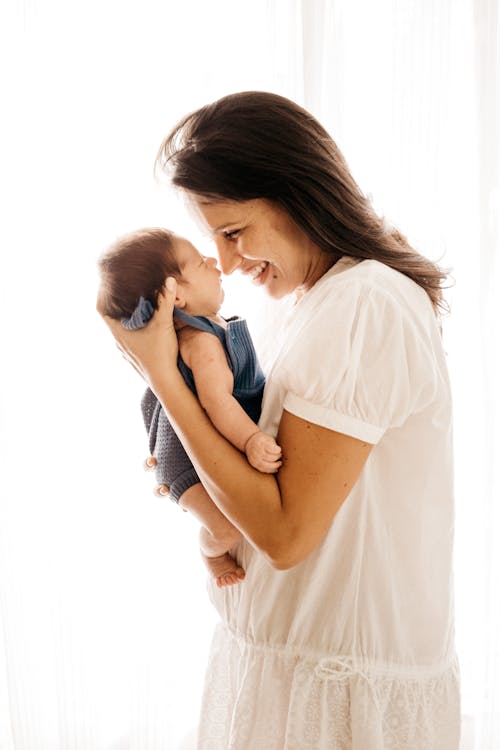Incontinence After Childbirth: What You Should Know
Jessica Lubahn 4 min read

Postpartum urinary incontinence refers to involuntary leaking of urine after childbirth. Many moms experience this, typically while they are coughing, laughing, sneezing, or performing different activities.
If you experience urinary incontinence, you're not alone. It's common after giving birth. In fact, over 1/3 of new moms experience it! But what exactly should you know about this postpartum symptom?
Read on to learn about urinary incontinence after childbirth, from its causes down to how to deal with it.

Causes of Urinary Incontinence After Childbirth
When you’re pregnant, you will produce hormones stretching muscles and tissues that support your bladder, bowel, and uterus. This is a group of muscles and tissues known as the pelvic floor.
When your baby begins to move down through your vagina during childbirth, the pelvic floor stretches and will remains stretched for a certain period.
With the mix of hormones and the stretched pelvic floor, it means muscles controlling the bladder are weak. This is what leads to urinary stress incontinence, and the reason you accidentally leak urine after pregnancy and delivery.

As mentioned, it’s common for new mothers to accidentally leak urine, though some are more likely to develop incontinence during pregnancy if:
• You have had bladder problems during pregnancy
• This is your first baby
• If you’re having a large baby
• You experienced a long labor or difficult delivery
It may be embarrassing, but not to worry, as it goes away within the first few weeks. Just let those stretched muscles and tissues recover. You can work to strengthen those muscles through a variety of treatment options after your vaginal delivery.
However, some women may experience incontinence for a few months, while for others, the pelvic floor doesn’t completely recover.
If you experience leakage even after six weeks of giving birth, it’s best to talk with your doctor or midwife, who can help you find ways to treat it and reduce the risk of the leakage being a life-long problem.
Treating Your Bladder After Pregnancy
Now that you’re familiar with what urinary incontinence is and why it happens, what can you do to stay comfortable? Here are some things you can do to strengthen your pelvic floor muscles:
• Do Kegel exercises, working three sets of 30 Kegel exercises daily
• Begin losing a bit of the pregnancy weight, which may be the reason why you have pressure around your bladder
• You can train your overactive bladder to behave! Use the toiler every half hour before you feel any urges, then extend the time between toilet visits daily
• Avoid constipation after childbirth, so the full bowels won’t put more pressure on the bladder
• Continue drinking at least eight glasses of water daily. While it sounds counterproductive, lessening water to control your pee can make you at risk to dehydration and a urinary tract infection
• Go for water and avoid alcohol, coffee, citrus, soft drinks, and tomatoes. These irritate the bladder, making it difficult to control your urination
Living With Urinary Incontinence After Childbirth
If ever urinary incontinence becomes a long-term problem, I recommend these tips:
• Wear incontinence pads, leak proof panties, or adult diapers. Do NOT use tampons, as this blocks your urine flow and isn't allowed for the postpartum period.
• Always bring an extra set of underwear or clothes when going out in case of accidents
• When sneezing or laughing, cross your legs to prevent leakage
• Modify any exercise routine you do and avoid high-impact moves that involve jumping
• When out, know where all the nearby toilets are located so you can find them right away
If all else fails, your doctor can recommend treatments or surgery to deal with the leakage.
Hopefully, you learned more about urinary incontinence and what you may expect after childbirth. Prepare ahead and have a safe delivery!

 BACK TO Blog
BACK TO Blog




